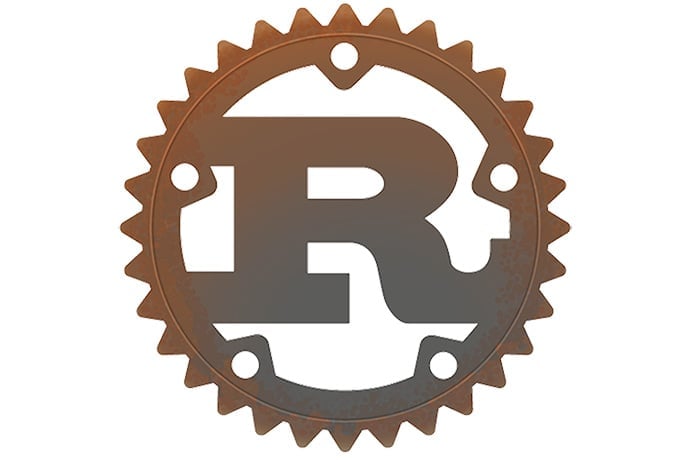In some ways, Rust is an upside down systems programming language. The developers have mostly hunted through old languages to find ideas useful to solve problems software developers face today and mostly ignored recent research into programming languages. Yet Rust solves many key weaknesses of C, C++, and other languages. Rust 1.0, the first stable version of the language, was released on May 15, 2015.
What Makes Rust Special?
To solve key programming-related problems in low level C and C++ languages, ownership is the primary concern of Rust. Ownership helps solve critical security and runtime problems with memory management C and C++ programmers have dealt with for decades.
If you don’t know, low level languages run as close as possible to the native binary 1s and 0s used by your computer to run software. Low level languages are faster than langugaes which need extra runtime software included with their applications to convert their code to a lower level native language. C and C++ are low level languages. Python, Java, PHP, and other languages are higher level languages.
The idea of ownership is fairly simple to explain. When you write code, the programming language assigns your code to specific parts of your computer memory and indexes its location. The index makes it easy to find, process (compile), and run your code. With some languages like C and C++, it is possible for the programming language to become confused about where your code resides in memory. Connections within your code can’t be made and your program crashes.
Ownership enforces strict rules about how code is written to make it easier to manage the storage and indexing of your code in your computer memory. Which makes sense, if you think about it. A new programming language is free to solve this problem while an existing language has past code and concepts to deal with.
Typically, programming languages have used garbage collection to track use of your computer memory and delete memory no longer needed. Rust does not use garbage collection. Instead, the Rust compiler tracks memory location and usage based on ownership and object lifetimes. As a result, the language can be embedded in other languages and used for writing low level code like software drivers and operating systems. However, Rust reportedly runs as quickly as low level languages C and C++.
The language also is open source, like other Mozilla projects, and has a strong active community around the language. The best documentation and tutorials are on the Rust main website. If you search online for tutorials and documentation, for example, you might find a few with inaccurate information. Now that Rust is stable, anything published after May 2015 is likely accurate.
Finally, the name of the language turns out to have an amusing back story. There is no official reason for the name Rust beyond a name that can be interpreted many different ways. Wikipedia says the language is named after an amazing fungus called Rust. However, digging deeper online reveals it is simply one of many reasons for the name.
How is Rust Used?
In real world terms, Rust is designed to compete with or replace C and C++ as low level languages used in computer operating systems and other applications. Rust does include concepts from a number of other languages to round out its features and how it solves common programming problems.
Rust started as a project by the Mozilla Foundation, the people who support the Mozilla Firefox web browser. They wanted to create Servo, a new web browser software engine to run Firefox, but wanted a more robust, faster, and modern language than C or C++.
Because Rust is a new language with its first stable version released May 2015, the active community around the language is developing the first libraries and people are creating their first projects to test its features.
Learn More
Rust
http://www.rust-lang.org/
https://doc.rust-lang.org/book/
https://github.com/rust-lang
https://www.reddit.com/r/rust/
https://users.rust-lang.org/
https://chat.mibbit.com/?server=irc.mozilla.org&channel=%23rust
https://stackoverflow.com/questions/tagged/rust
https://twitter.com/rustlang
http://blog.rust-lang.org/
https://www.google.com/calendar/embed?src=apd9vmbc22egenmtu5l6c5jbfc%40group.calendar.google.com
https://mail.mozilla.org/pipermail/rust-dev/
https://en.wikipedia.org/wiki/Rust_(programming_language)
Origin of the Name Rust
https://github.com/rust-lang/rust/pull/14896
https://github.com/rust-lang/rust/pull/20531
http://www.reddit.com/r/rust/comments/27jvdt/internet_archaeology_the_definitive_endall_source/
https://en.wikipedia.org/wiki/Rust_(fungus)
Rust 1.0 Announcement
http://blog.rust-lang.org/2015/05/15/Rust-1.0.html
http://arstechnica.com/information-technology/2015/05/mozilla-backed-rust-language-stabilizes-at-version-1-0/
http://www.extremetech.com/computing/206002-rust-1-0-the-programming-language-behind-mozillas-new-web-engine-servo-is-released
Rust by Example
A 30-Minute Introduction to Rust (January 2014)
Early version of the Rust Book.
http://words.steveklabnik.com/a-30-minute-introduction-to-rust
Steve Klabnick
http://words.steveklabnik.com/
http://www.maskmagazine.com/the-cyborgoisie-issue/work/steve-klabnik-interview
https://news.ycombinator.com/item?id=8086818
https://archive.fosdem.org/2015/interviews/2015-steve-klabnik/
http://www.reddit.com/r/rust/comments/2bpnia/long_interview_with_steve_klabnik_whos_producing/
Diving Into Rust for the First Time
https://hacks.mozilla.org/2015/05/diving-into-rust-for-the-first-time/
Rust for Rubyists
http://www.rustforrubyists.com/book/book.html
A Taste of Rust
http://www.evanmiller.org/a-taste-of-rust.html
https://news.ycombinator.com/item?id=9546757
Rust for Functional Programmers (July 2014)
http://science.raphael.poss.name/rust-for-functional-programmers.html
The Rust Programming Language: Fast, Safe, and Beautiful
O’Reilly webinar from January 2015.
http://www.oreilly.com/pub/e/3291
How do Rust and Go compare?
https://www.quora.com/How-do-Rust-and-Go-compare-1
Why is Mozilla developing the Rust language and what are the problem areas for which it is better suited than conventional languages? How does it compare to other system languages?
Low Level Languages
https://en.wikipedia.org/wiki/Low-level_programming_language
http://stackoverflow.com/questions/2624781/which-programming-languages-arent-considered-high-level
http://www.codecommit.com/blog/java/defining-high-mid-and-low-level-languages
Garbage Collection
https://en.wikipedia.org/wiki/Garbage_collection_(computer_science)
http://programmers.stackexchange.com/questions/113177/why-do-languages-such-as-c-and-c-not-have-garbage-collection-while-java-does
http://stackoverflow.com/questions/1424660/garbage-collection-vs-non-garbage-collection-programming-languages

